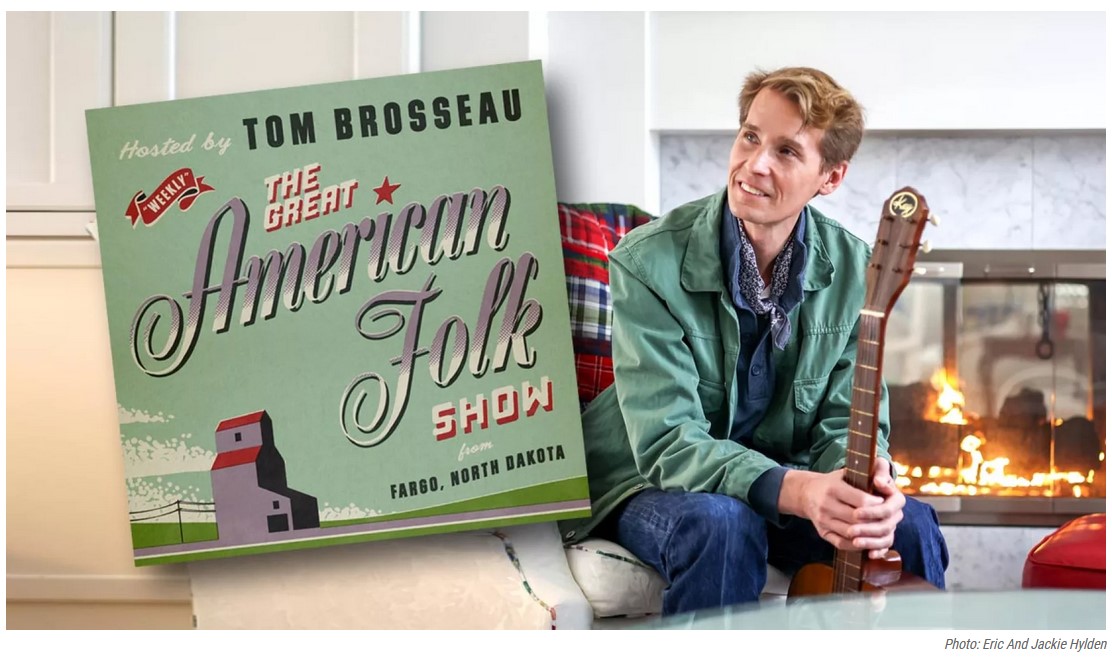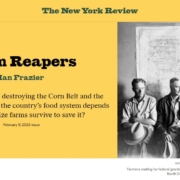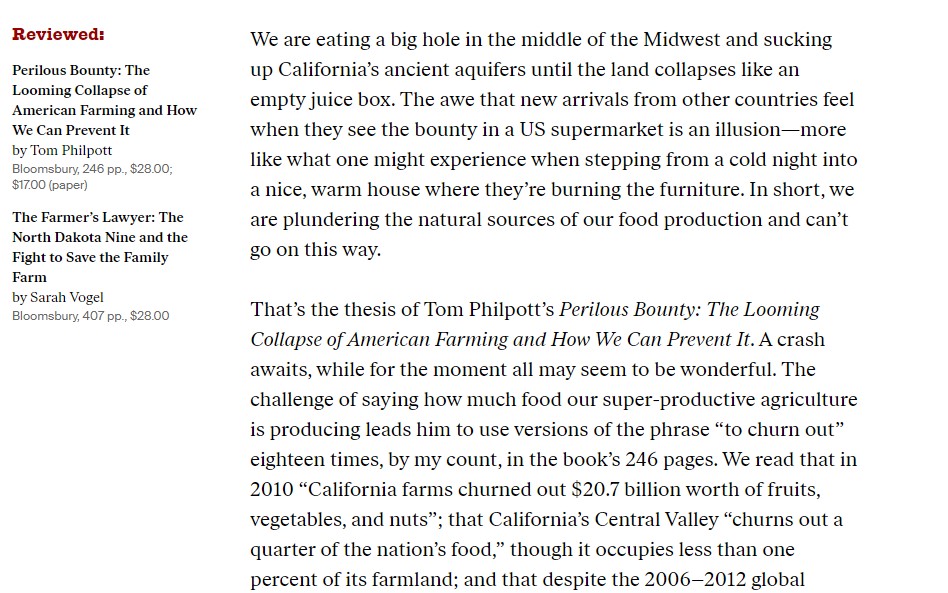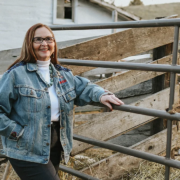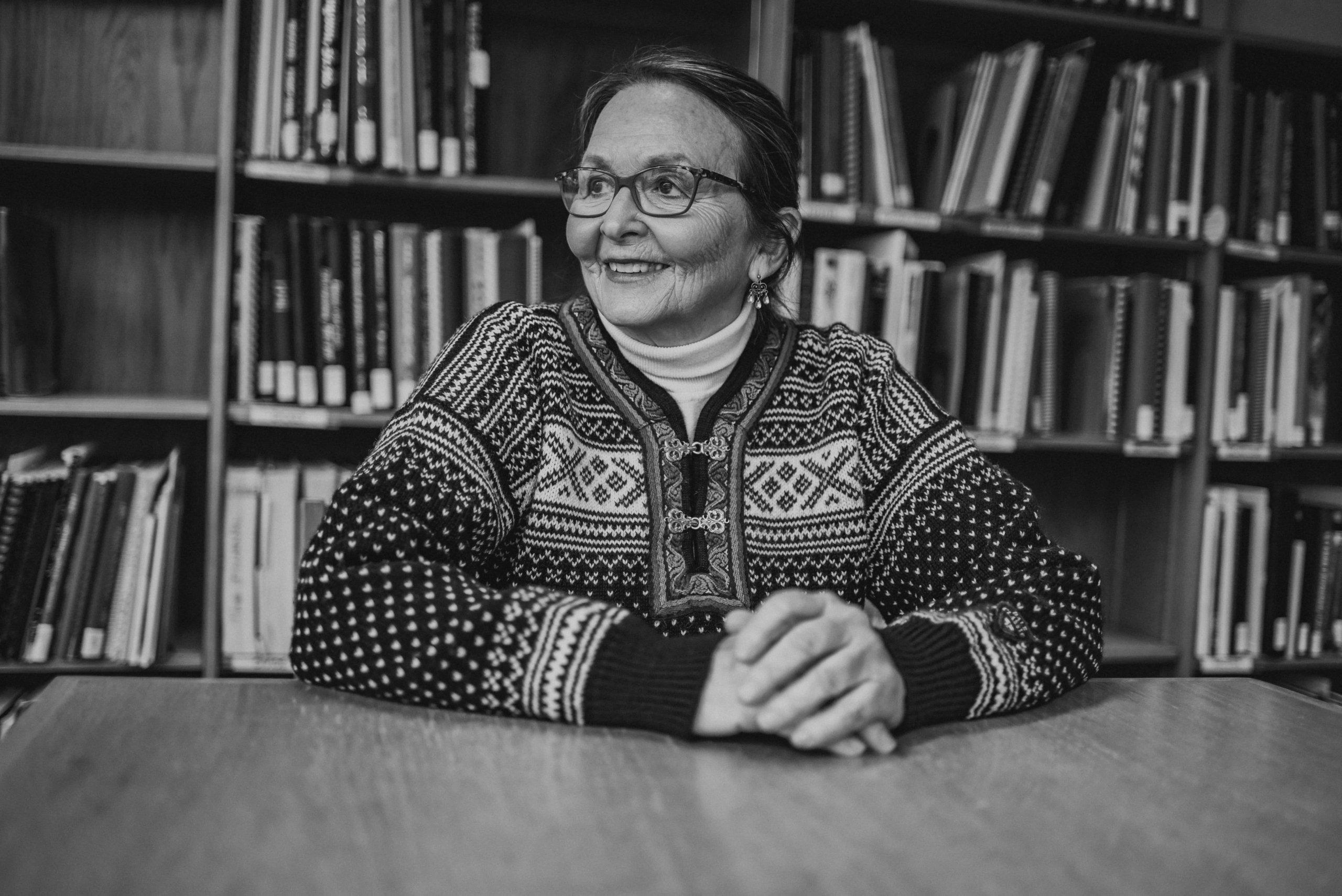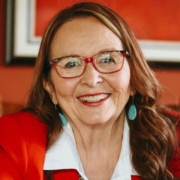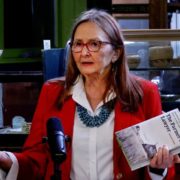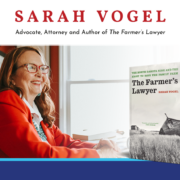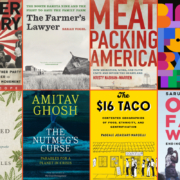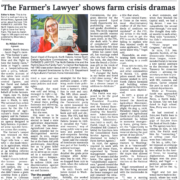Excerpt from AG WEEK:
FARGO, North Dakota — In 1981, Sarah Vogel was out of her upper echelon U.S. Treasury Department job in Washington, D.C., because Ronald Reagan beat Jimmy Carter for the presidency.
Vogel moved from Virginia back to Bismarck, North Dakota. She incorrectly thought banks might hire her for “advice,” much as she’d given advice to the Secretary of the Treasury. She and her son Andrew moved into a house on the Missouri River.
A financially troubled farmer-friend, Chuck Perry from North Dakota, now was traveling the country, raising funds for the “Farmers and Ranchers Protective League.” And he was promoting Vogel’s legal services to farmers in trouble with the FmHA.
In her book, “The FARMER’S LAWYER,” Vogel said she was “building a law practice for farmers who couldn’t afford my fees.” She was receiving child support, making only monthly minimum payments on all of her credit cards. She still owed $100,000 on the Virginia condo. Her loan was in default.
She held out hope she might get paid in these farm cases because Congress had passed the Equal Access to Justice Act. The EAJA said that if a citizen or small business sues (or is sued) by the U.S. and wins, the government should pay the winner’s legal fees.
In the “The Farmer’s Lawyer,” she describes how she accumulated a string of financially weakened clients.
Read the full feature, the second of a three-part story by Mikkel Pates, Agweek staff writer, about Sarah Vogel’s new book — THE FARMER’S LAWYER: The North Dakota nine and the Fight to Save the Family Farm.




